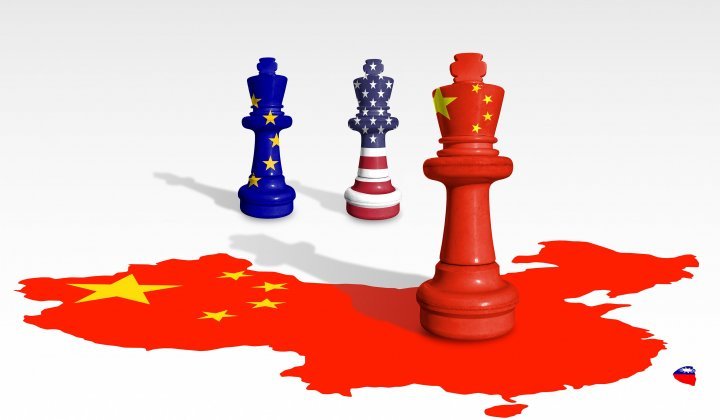Marketing meets shared value
- Marketing is a self-promotional tool used by individuals and companies to promote their products and services. It is fundamentally focused on driving up revenue, gaining brand recognition and unlocking value for the brand in question.
- Shared value is a concept first used by Harvard professors, Michael Porter and Mark Kramer, in 2011 and speaks to the links between business and society. Shared value is about how finding ways to solve social and environmental problems can, in fact, create new value for a company.
- Brand purpose is a company’s stated reason for existing, beyond the goal of making money. It is the ‘why’ that should underpin everything an organisation does and how it communicates its intention to the world.
- Shared-value marketing. As Hollard Insurance’s marketing campaign Big Ads for Small Business shows, it is possible to use the concept of shared value in a marketing strategy – provided your strategy, your intention and your purpose are aligned.
In early August 2021, a GIBS Executive MBA elective was given the opportunity to put their ideas and learnings into practice when six small businesses, each facing particular challenges in their growth and operational journey, opened themselves, their business models, and their pain points up for scrutiny.
The six businesses, and their unique challenges, were:
- Koni Wines, a black-owned wine brand.
- Moja Chicken, a black-owned grilled chicken restaurant.
- African Accent, a spaza shop distribution hub.
- Ronewa Creations, a landscaping service.
- Busanimen Tailors, a company that provides suits and formal wear for special events.
- SchoolHub, a secure school payments platform.
Rather than a disparate group of unconnected SMMEs, each of these companies had one striking thing in common: they had each been featured in Hollard Insurance’s stand-out 2021 marketing campaign, Big Ads for Small Business.
The reason this particular campaign was of such interest to GIBS and its MBA students lay in the fact that the concept clearly showed that companies could create shared value with massive marketing reach and return on investment (ROI) while, at the same time, running a business and making a social impact. In this case, the campaign also set out to make a tangible difference to small businesses and entrepreneurs being hit by two years of Covid-19 restrictions, lockdowns and financial and social challenges. On that score, too, it succeeded.
A shared-value marketing approach
In February 2020, when Hollard first briefed its agency, VMLY&R South Africa, on a new campaign, it was with explicit instructions from its chief marketing officer, Heidi Brauer, to find ways to communicate the Hollard brand attributes in the context of Covid-19 but without blowing the insurer’s tight marketing budget.
As the pandemic began to grip South Africa, and the country was thrown into a lengthy level 5 lockdown from midnight on 26 March 2020 until 30 April 2020, the agency tapped into the country’s rising levels of anxiety as many workers and businesses were effectively prevented from earning. As Michael Rogan and Caroline Skinner from Rhodes University and the University of Cape Town described this period, “We found that just under a third (31%) of informal workers who did not lose their livelihoods completely were ‘locked out’ of employment in April. This compares with 26% of those in formal employment.”
The creative team at VMLY&R South Africa paid particular attention to the news headlines highlighting how SMME businesses were taking a beating. So, they decided to pitch a campaign that spoke directly to Hollard’s purpose: to enable more people to create and secure a better future.
As Brauer recalled, “Ryan McManus [chief creative officer] from VMLY&R presented, and he said: ‘What if there’s a better way to do advertising? What if we didn’t take the advertising? What if, given the current context with small businesses battling so much, we gave our advertising away?’.”
Recognising that this was a big ask, McManus added the following words to his presentation deck, “I know what you’re thinking, that the actuaries are probably squirming, thinking ‘Do you want to bankrupt Hollard?’ But remember the first time somebody said, ‘Let’s insure dogs’.”
Hollard went for it, giving the go-ahead for a six-month campaign that would run from 19 February 2021 and feature small businesses that were carefully selected. Each small business would receive R1 million in advertising exposure across billboards, TV spots, radio, street poles, bus shelters, print, social and digital media. This would be an avalanche of work for VMLY&R South Africa, which would have to create not one, but 13 individually-tailored campaigns – one for Hollard and one for each of the 12 businesses selected from an initial pool of 292 applicants.
Each of the businesses was carefully vetted to ensure they could cope with the influx of orders and growth expected as a result of the national campaign. As Brauer recalled, “We didn’t want to break anyone. They needed to benefit from the ad campaign.”
To reinforce the campaign’s shared-value credentials, Hollard also hosted a workshop for all 292 applicants with South African small business guru, Pavlo Phitidis, and held a virtual launch function that enabled the 12 selected businesses to profile themselves to an invited audience, including Hollard employees and media. The insurer also offered guidance from a legal and business perspective when some of the 12 participants secured corporate clients or export orders because of the campaign.
This wasn’t just ‘giving away advertising’, as 702 broadcaster, Bruce Whitfield, quipped two days before the campaign kicked off. It was rather a deliberate and carefully executed plan to create awareness in the best way possible for each of the 12 businesses. If national coverage was needed, national coverage was rolled out. If a local-only or print strategy was deemed the best for a particular company, that was the approach taken. About 90% of Hollard’s advertising was given away during the campaign – except for one billboard in Hyde Park – and additional advertising space was used. Partnerships with outdoor company, AdReach, as well as the South African Jewish Report and Motion Ads, which placed adverts on delivery motorbikes and scooters, yielded discounts, additional exposure and associated and ongoing support for small businesses.
Everything focused on squeezing as much value as possible out of these valued partnerships and seeking potential avenues to stoke awareness and give these small businesses the boost they desperately needed.
Adding another layer of value
The Executive MBA session – which was conceptualised by Abdullah Verachia as he and Dr. Manoj Chiba were writing a case study on the Big Ads for Small Business campaign – was a huge success. The MBAs got lots of value from the session, the businesses themselves benefited greatly from the insights and ideas shared, and Hollard’s brand and the shared-value intention behind the marketing campaign was given a further boost – even as Hollard and VMLY&R South Africa were beginning to look forward to the next offering and strategising how best to leverage the goodwill generated by the Big Ads for Small Business campaign.
During the elective, MBA students were divided into groups, with each group working with one of the six companies. The owners of the companies received feedback about how to grow their businesses. In some instances, the owners themselves posed specific questions to the class and MBAs were directed to solve these particular needs.
While this shot of high-level input was invaluable for the six companies that participated, it was ultimately the exposure afforded by the Hollard campaign that provided the boost these small businesses needed to jump onto a growth and expansion trajectory – an opportunity other struggling companies in South Africa would undoubtedly grab with both hands.
A win-win for ROI
As the 2019-2020 Global Entrepreneurship Monitor (GEM) South Africa report noted, many entrepreneurs in this country never make it past the ‘total early-stage entrepreneurial activity’, which encompasses nascent and new business ownership. While entry-level phase entrepreneurship is growing in South Africa – up 10.8% in 2019 – we are still recording a 4.9% business exit rate, which is higher than the established business rate of 3.5%. According to the GEM authors, this means that “more businesses are closing down, being sold or otherwise discontinued than being started”.
In short, it’s not always easy being a business owner in South Africa.
One way to help small businesses flourish in such an environment is by giving them the exposure they need to sell their products and services to the market. The ROI this generated for the 12 businesses featured in Big Ads for Small Business was something Hollard CEO, Saks Ntombela, had demanded from the beginning, and it was something Brauer used as an informal litmus test of the campaign’s success.
According to information shared by Hollard, even before the official end of the campaign in August 2021, there were positive signs:
- Koni Maliehe from Koni Wines received two export contracts for Namibia after clients saw her advert on television. The company reported a 22% hike in sales.
- Lehlogonolo Motseeng from Moja Chicken was approached by Capitec Bank, which will soon be installing ATMs in Moja Chicken branches. Since the campaign, Moja Chicken has signed up three new franchises.
- Landscaping service, Ronewa Creations, saw a 567% rise in web traffic and a 133% increase in maintenance clients. It also landed the garden services contract for Nasrec conference centre.
- Busanimen Tailors landed a big project which came about due to the exposure from the campaign.
As for Hollard, data emerging in late July and early August 2021 showed that roughly 113 million media impressions had been logged, public relations value of more than R9.2 million recorded, and public opinion was positive. While it was still too soon to fully quantify ROI, Hollard’s total brand awareness jumped from fourth to second, and the insurer had leapt from tenth to fourth position in the ‘A brand I would consider if I was looking for insurance’ category.
These results were particularly impressive given the highly competitive sector in which Hollard plays and the fact that the brand is not the biggest spender in the market. Hollard spends just 2% of revenue, or around R76 million in 2020, in a category that generally spends in the region of R4 billion annually.
Right now, the lengthy process of publishing an academic case study is slowly playing out, and it may be some time before a more detailed examination of Hollard’s Big Ads for Small Business campaign is published and unpacked by future MBA classes. But the impact of this shared-value marketing approach is already a valuable lesson in brand alignment, clarity of purpose and the boldness it takes to ‘put advertising money where your mouth is’ when it comes to creating and securing ‘better futures’.




